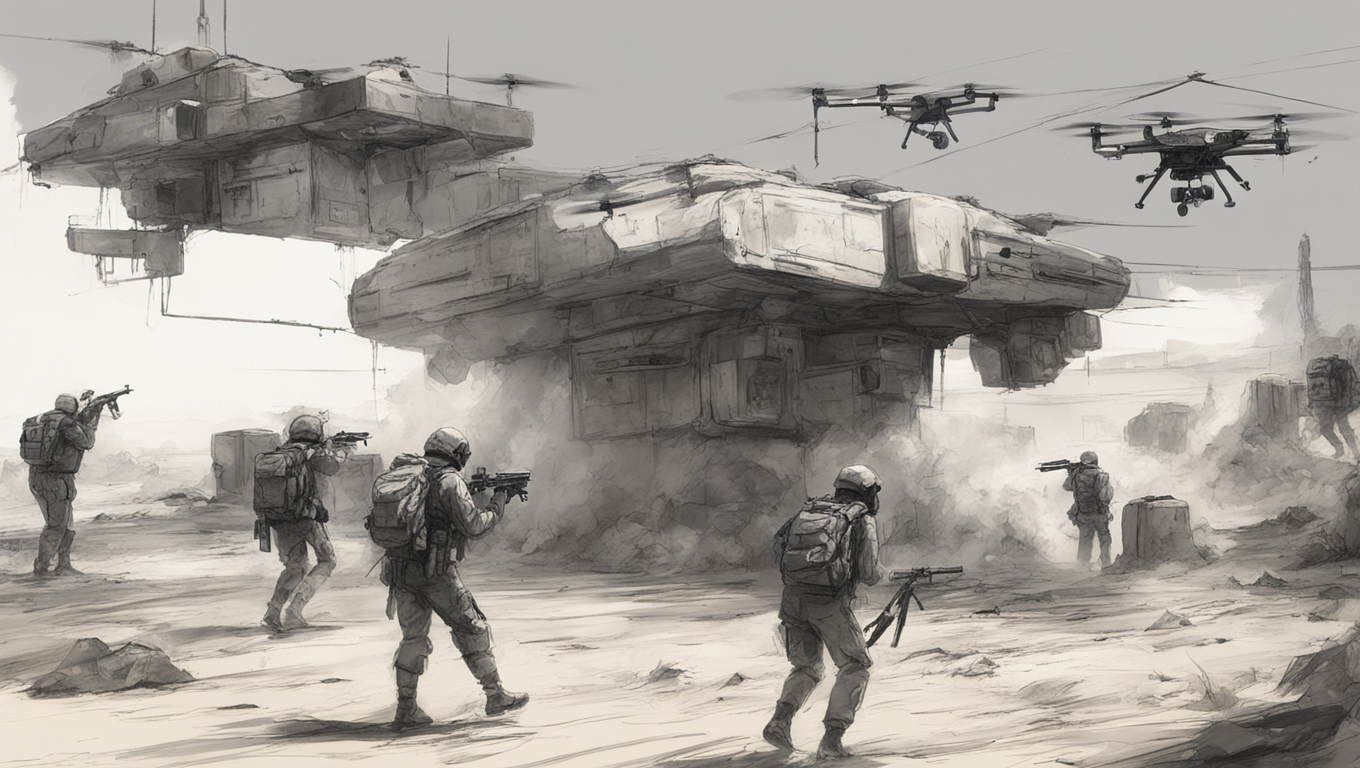In a shocking revelation, an investigation by +972 magazine and Local Call has exposed Israel’s use of an artificial intelligence (AI)-powered targeting system dubbed Habsora, or the Gospel in English. This system has raised concerns about the potential ramifications of advanced technology in warfare. Whirlwind advancements in AI have led to questions about whether it is making war deadlier and what kind of information is utilized in military targeting systems like the one employed by Israel.
Habsora, an AI-based targeting system, operates with incredible speed and efficiency, providing targeting recommendations faster than a human team ever could. But with great power comes great responsibility. The use of AI in warfare raises ethical and tactical dilemmas that demand careful consideration.
Laura Nolan, a software engineer and member of the Stop Killer Robots coalition, sheds some light on the issue. In an interview with Marc Lamont Hill on UpFront, she delves into the implications of utilizing AI in warfare. Nolan emphasizes the need for a critical examination of the kind of information that goes into these military targeting systems.
The prospect of an automated system making life-or-death decisions raises serious moral concerns. The use of AI in warfare prompts questions about the accuracy and reliability of the information fed into these systems. Nolan warns against blindly trusting AI and stresses the importance of human oversight and accountability in decision-making processes.
Nolan states, “There is nothing sacred about the machine predicting something for us. It could be bias, it could be wrong, it could be miscalibrated, it could be misconstrued.” She highlights the need for human judgment in determining the validity and appropriateness of AI-generated recommendations.
The investigation into Habsora also raises concerns about the innovation of AI in military applications. As technology continues to advance, military forces worldwide may be tempted to use AI for their own gain. However, the potential for unintended consequences and civilian casualties cannot be taken lightly.
The Israeli military’s use of an AI-powered targeting system serves as a stark example of the transformative power of technology in warfare. It showcases the need for a comprehensive evaluation of the ethical implications surrounding AI and its role in military operations.
Nolan’s expertise in software engineering and her involvement in the Stop Killer Robots coalition make her insights invaluable in understanding the potential risks and benefits associated with AI in warfare. As technological developments continue to reshape our world, it is crucial that we approach the integration of AI in warfare with caution and rigorous analysis.
The use of AI in military targeting systems raises a multitude of complex and thought-provoking questions. How do we ensure the AI systems are unbiased and accurate? How do we prevent the loss of civilian lives? How do we strike the right balance between innovation and responsibility?
The investigation into Israel’s AI-powered targeting system serves as a reminder of the advancements being made and the ethical dilemmas arising in the field of warfare technology. As we navigate the uncharted waters of AI in warfare, we must remain vigilant and proactive in safeguarding human lives and ensuring that technology is held accountable to our values and ethics.





Use the share button below if you liked it.